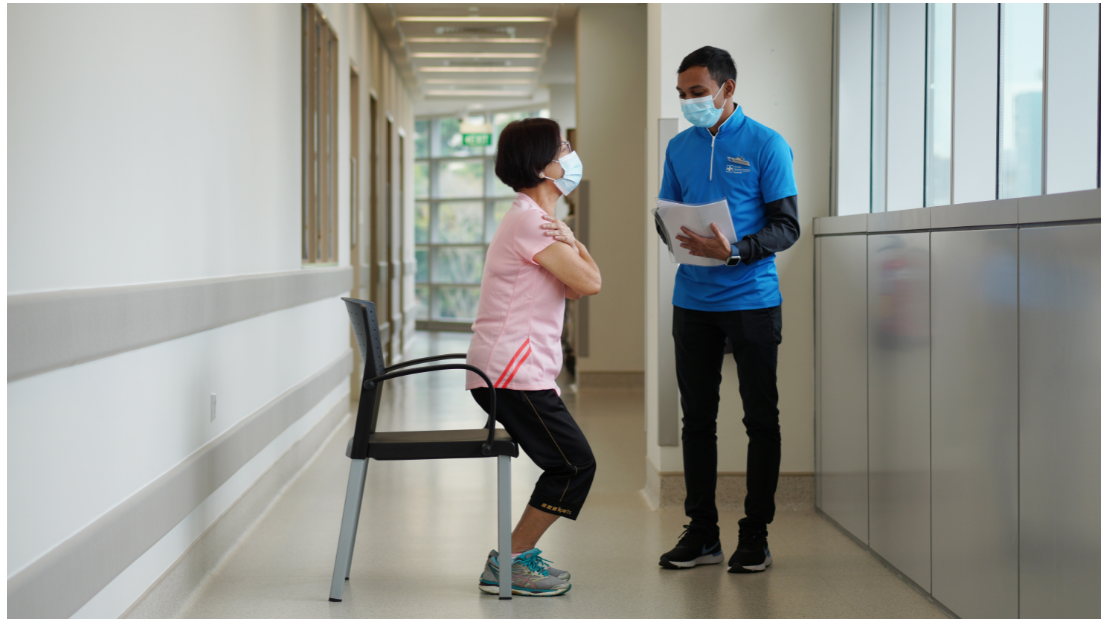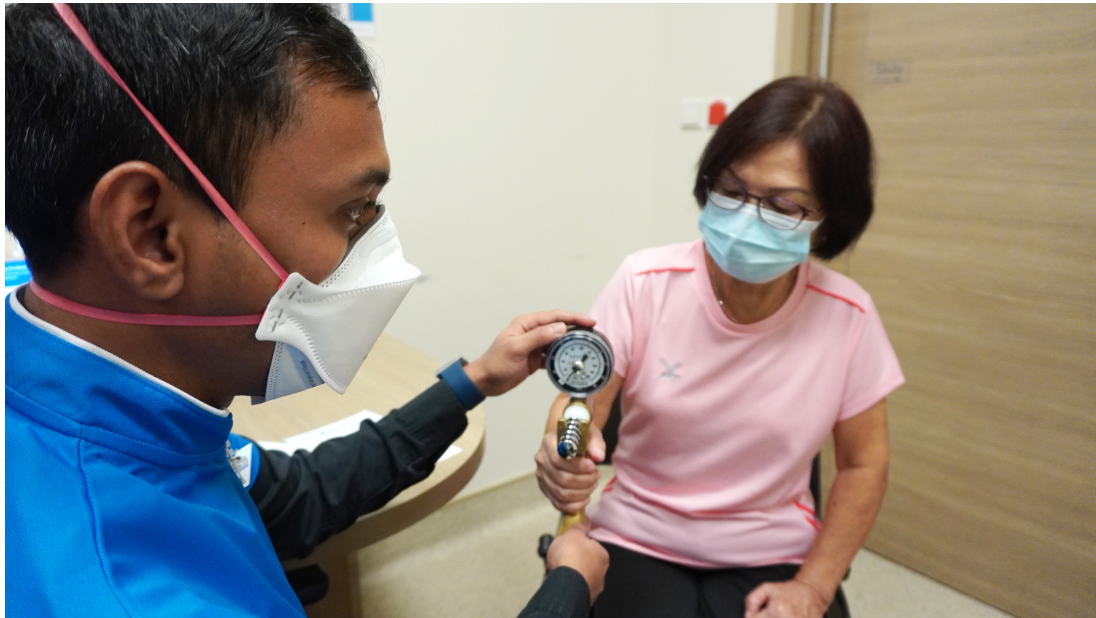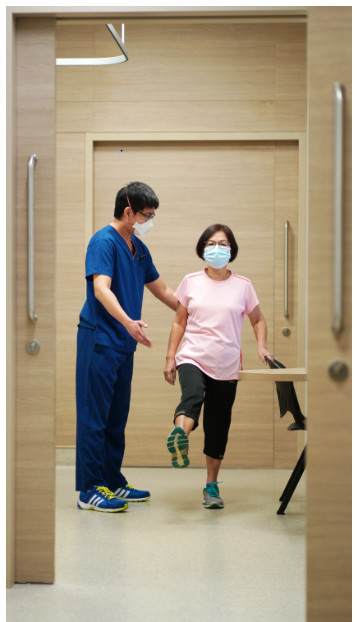15 February 2022 - Patients with newly diagnosed cancers who require prehabilitation before embarking on their cancer treatment at Changi General Hospital (CGH) can now have a head-start in optimising their physical and mental health in the comfort of their homes. Initiated by CGH rehabilitation medicine specialists, this one-stop screen-and-intervene initiative cuts down time spent in the hospital, and allows patients to focus fully on the prehabilitation to reap its benefits before treatment starts – be it for surgery, chemotherapy or radiotherapy.
Comprising a series of assessment tests and clinical interventions, CGH’s prehabilitation programme has since benefited close to 200 patients. In a pilot study of some 60 colorectal cancer patients, the patients showed significant improvement in physical tests measuring their functional capabilities after undergoing prehabilitation, which also translated to better functional recovery after surgery. They also had a significant improvement in their mental health, and went home earlier by an average of 1.5 days after the surgery, with reduced readmission and mortality rates.
Clinical Assistant Professor Kwok Kah Meng, Consultant, Department of Rehabilitation Medicine, said, “The involvement of a rehabilitation specialist doctor within CGH’s prehabilitation programme allows us to holistically assess and intervene across medical, physical and mental domains, and improve our cancer patients’ capacity to better withstand their upcoming surgery or anti-cancer therapies. Beyond that, we also aim to help them regain their functional independence post-treatment as soon as possible, facilitate their recovery journey from hospital to home, and empower them to develop long-term beneficial health habits including exercise.”
Clinical Assistant Professor Dr Tay San San, Chief and Senior Consultant, Department of Rehabilitation Medicine, said, “Despite the pandemic, our cancer patients have been able to undergo cancer prehabilitation in the safety and comfort of their homes with minimal disruption due to the home-based model of this programme. This ‘window of opportunity’ is crucial in empowering our patients to play a part in improving their post-surgery outcomes. With the prehabilitation framework set up by CGH, more cancer patient groups are able to benefit from the one-stop initiative.”
Typically, in other models of care, patients are referred to various allied health specialties by the surgeons for prehabilitation. These appointments may occur on different days, and take time However, under the new framework, most patients will need only two appointments – one for the first consultation and the other before treatment starts.
Patients are mostly seen on the same day for their prehabilitation consultation, after their surgical consultation. They will undergo a holistic health assessment comprising frailty, functional and mental wellness tests by a prehabilitation coordinator. Based on the results and their medical conditions, the rehabilitation doctors will draw up a personalised intervention plan in four areas, including optimisation of pre-existing chronic conditions, an exercise prescription, and specific advice relating to nutrition and mental wellness.(Refer to Annex A)
Patients are then empowered to carry out these exercises and relaxation techniques at home that are taught by the doctors. Family members and caregivers who are present during the consultation can also learn these exercises to provide further reinforcement and supervision. These curated exercises are available to the cancer prehabilitation patients under the HealthBuddy mobile app for them to re-watch and follow the exercise video demonstrations developed by CGH. The prehabilitation coordinator also checks in on patients’ progress regularly. (Refer to Annex B)
During the consultation, the doctors may also prescribe or titrate medication to improve patients’ body conditions and in some instances, recommend additional supplements to promote recovery post-treatment.
At the second consultation, prior to their cancer treatment, patients will undergo the same set of assessment tests to measure their progress. The CGH prehabilitation team will continue to monitor their recovery after their surgery, chemotherapy or radiotherapy sessions.
The prehabilitation programme has been expanded to include prostate, bladder, liver, biliary, pancreatic, oesophagus and gastric cancer patients planned for surgery at CGH. (Refer to Annex C for patient profile)
Click
here or scan the QR code below to watch the
YouTube video of the patient journey for cancer prehabilitation (Internet access required)

CGH Prehabilitation Coordinator conducting the sit-to-stand assessment

CGH Prehabilitation Coordinator conducting the hand grip test using the hand dynamometer

CGH Rehabilitation Specialist demonstrating an exercise for a patient undergoing prehabilitation

